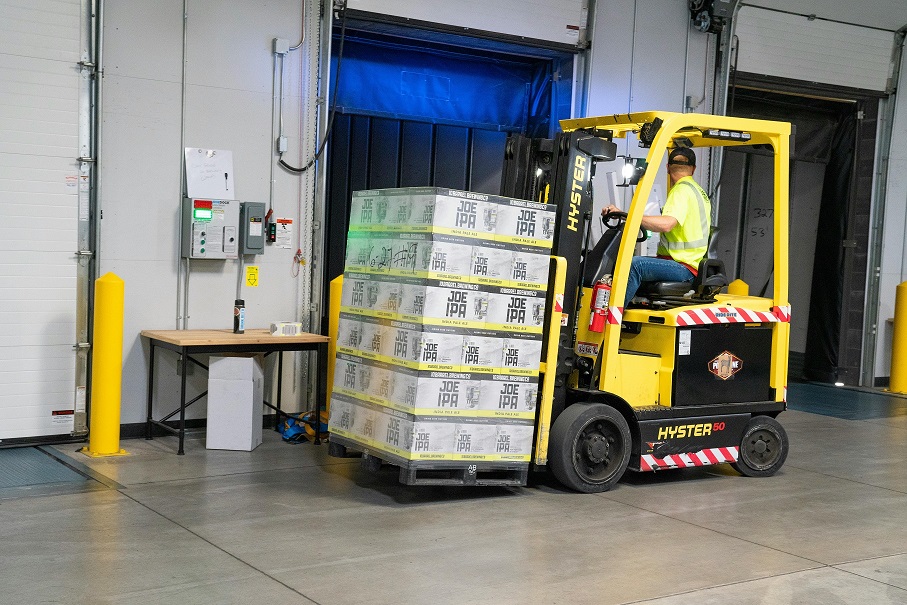Operating a forklift might seem simple at first glance. With its compact design and sturdy structure, it can give the impression of an easy-to-use machine. However, forklifts are complex vehicles that require precision and skill to operate safely.
For businesses across industries, ensuring that forklift operators are well-trained is not just a matter of compliance but also a critical aspect of workplace safety and efficiency. In this blog post, we’ll delve into the importance of forklift training and why it should never be overlooked.
Understanding Forklift Risks
Forklifts are powerful machines designed to handle heavy loads in environments like warehouses, construction sites, and manufacturing plants. However, their ability to carry large weights makes them potentially hazardous when not operated correctly. Forklift-related accidents are more common than one might think and can result in serious injuries, fatalities, and damage to property.
Common Forklift Hazards
- Overturning: One of the most common causes of forklift-related accidents is the vehicle overturning due to an imbalance of weight.
- Collisions: Forklifts often operate in busy environments, and collisions with workers or objects can occur if the operator is not fully aware of their surroundings.
- Falling Loads: If a load is not secured properly, it can fall from the forklift and cause injuries to nearby workers.
- Pedestrian Injuries: In environments where forklifts and pedestrians share the same space, accidents can occur due to poor visibility or lack of awareness.
Without proper training, operators may not be able to identify or mitigate these risks, increasing the likelihood of accidents.
Legal and Regulatory Requirements
In many countries, including Australia, there are strict legal requirements for forklift operation. Employers are legally obligated to ensure that any individual operating a forklift is adequately trained and certified. This training is not only a compliance issue but also a preventative measure to reduce workplace accidents.
Australian Standards and Legislation
In Australia, Work Health and Safety (WHS) laws mandate that workers operating forklifts must hold a High-Risk Work (HRW) licence. This licensing process involves specific forklift training, ensuring that operators are equipped with the necessary knowledge and skills to perform their duties safely.
Training providers such as FMS Training Services offer comprehensive programs designed to help businesses comply with these laws while equipping operators with practical skills. While choosing a provider, it’s crucial to ensure that they are registered and meet national standards.
Benefits of Forklift Training for Businesses
Beyond compliance with regulations, forklift training brings a range of benefits to both the business and its employees.
1. Enhanced Workplace Safety
The most obvious benefit of forklift training is a reduction in workplace accidents. When operators are aware of the machine’s limitations, potential hazards, and safety protocols, they are more likely to make informed decisions and avoid risky behaviours. Trained forklift operators know how to:
- Conduct pre-operational checks to identify any mechanical issues.
- Safely load and unload materials.
- Maneuver in tight or busy spaces without endangering other workers.
2. Improved Efficiency and Productivity
A well-trained operator from Forklift Academy LA can significantly boost workplace productivity. Operators who understand how to handle the forklift efficiently can complete tasks faster, reduce downtime, and avoid costly mistakes. Proper training ensures that operators are confident in handling different load types and navigating through various environments, resulting in smoother operations.
3. Reduced Equipment Damage
Improper use of forklifts not only endangers people but also the equipment itself. Forklifts are expensive to repair and maintain, and accidents can lead to costly damage. Training programs teach operators the correct way to handle the vehicle, minimizing wear and tear, and reducing the likelihood of accidents that could harm the machine. This is especially helpful when using options like Forklift Rentals, where well-trained operators help keep the equipment running smoothly and the workflow uninterrupted. Taking care of the machinery benefits both the rental provider and the business, making operations more efficient for everyone involved.
4. Compliance and Avoidance of Fines
As mentioned earlier, forklift operators must be licensed in many jurisdictions. Non-compliance with legal standards can result in hefty fines for businesses, especially if an accident occurs. Having a trained and certified workforce ensures that your business complies with national safety standards, helping you avoid legal complications.
5. Boosted Employee Morale and Confidence
Training does more than impart technical skills. It also increases employee morale and job satisfaction. Forklift operators who receive formal training are more likely to feel confident and valued in their role, knowing that their employer is investing in their safety and development. This leads to a more engaged workforce, which in turn improves overall productivity.
What Forklift Training Involves
So, what does forklift training typically cover? A well-rounded training program is designed to equip operators with both theoretical knowledge and practical skills.
Theoretical Training
Theoretical training covers the fundamental principles of forklift operation. Trainees learn about:
- Forklift design and mechanics: Understanding how the forklift works and its key components.
- Safety regulations: Learning about workplace safety laws and how they apply to forklift operation.
- Risk management: Identifying potential hazards and knowing how to avoid them.
- Load management: Understanding how to safely load and transport materials without overloading the forklift.
Practical Training
Practical training allows operators to gain hands-on experience. During this phase, trainees will:
- Practice driving the forklift in a controlled environment.
- Learn how to load and unload materials safely.
- Navigate through obstacles and tight spaces.
- Perform maintenance checks on the machine to ensure it’s in good working condition.
Upon completing the training, operators typically undergo an assessment to determine their competency before receiving their certification.
The Long-Term Impact of Proper Forklift Training
Investing in forklift training has long-term benefits for businesses, including reducing turnover rates. A well-trained workforce that feels safe and confident in their ability to operate machinery is more likely to stay with the company. Additionally, companies with a strong safety culture attract skilled workers, reduce workplace injuries, and save money in the long run by avoiding the costs associated with accidents and equipment damage. Beyond training, maintaining forklifts with quality forklift spare parts, such as seats, brakes, and hydraulic components, can further enhance safety and operational efficiency (click on more info to read in detail). Ensuring that essential parts are in top condition minimizes the risk of unexpected breakdowns, keeping the workplace safer and more productive.
Conclusion
Forklift training is an essential step before operating these powerful machines. Not only is it a legal requirement in many countries, but it also plays a crucial role in ensuring workplace safety, improving productivity, and reducing the risk of accidents. Businesses that invest in proper forklift training will see the long-term benefits in safety, efficiency, and employee satisfaction.
The importance of forklift training cannot be overstated. Whether you’re an employer looking to improve safety in your workplace or an individual seeking to operate forklifts professionally, investing in thorough training is the key to safe and successful forklift operations.






